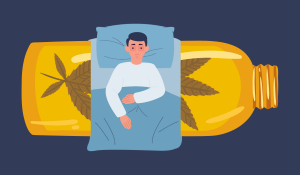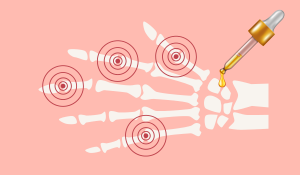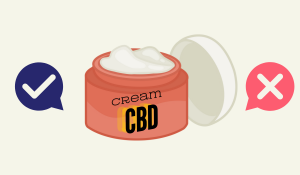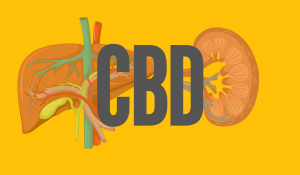Feeling overwhelmed by chronic pain and searching for a natural remedy? You’re not alone. Millions are turning to CBD for pain relief – benefits and considerations are vast and worth exploring.
This guide dives deep into how CBD can be a game-changer in your pain management journey. Ready to uncover the secrets of this remarkable compound? Let’s get started.
CBD shows promise in managing various types of pain:
Traditional painkillers like opioids can be effective but come with risks like addiction and severe side effects. CBD offers a natural alternative with a lower risk profile. It’s like choosing a gentle whisper over a loud shout to tell your body to ease the pain.
Recent studies suggest that CBD may:
For instance, a 2020 review published in the Journal of Pain Research highlighted CBD’s effectiveness in chronic pain management without significant adverse effects.
Inflammation is like a fire alarm in your body—necessary but sometimes overactive.
CBD may help “turn down the volume” by:
Terpenes are aromatic compounds in cannabis that may enhance CBD’s effects—a phenomenon known as the entourage effect. Combining CBD with terpenes like myrcene or limonene could amplify pain relief benefits.
Choosing the right product depends on your needs:
Read this article to understand the difference between Full-Spectrum/Broad-Spectrum/Isolate.
Consider the following:
Starting with a low dose is key:
Consulting a healthcare professional for personalized advice is always a good idea.
CBD offers a plant-based alternative that aligns with holistic health practices. It’s like tapping into nature’s pharmacy.
Compared to opioids, CBD’s side effects are generally mild, such as dry mouth or drowsiness.
CBD doesn’t produce the euphoria associated with THC, reducing the risk of dependency.
By managing pain, CBD can enhance sleep, mood, and overall well-being.
While CBD is well-tolerated, be aware of:
CBD may interact with:
Always discuss CBD use with your doctor, especially if you’re on other medications.
In the U.S., hemp-derived CBD with less than 0.3% THC is federally legal. However, state laws vary. Internationally, legality differs widely. Always check local regulations.
Not all CBD products are created equal. Look for:
A healthcare provider can help:
CBD can complement:
Keep a pain journal noting:
This data helps tailor your regimen for maximum benefit.

Therapeutic Uses of CBD Managing Chronic Pain with CBD Struggling with chronic pain? CBD might help. Studies suggest it can reduce inflammation and alleviate discomfort,...
Read More
Cannabis has been used for millennia to treat numerous health conditions. Current research offers promising results on the effects of CBD oil on breast cancer.
Read More
If you've ever wondered about using CBD for insomnia, you should know how CBD helps anxiety, stabilizes your sleep-wake cycle, and makes falling asleep easier.
Read More
CBD-infused salad dressing: Imagine a fresh, crisp salad enhanced with a light, herbaceous vinaigrette containing your daily dose of CBD. To create this, you’ll need...
Read More
1. What Is CBD and Why Is It a Game-Changer for Skin Health? CBD (cannabidiol) is a natural compound extracted from the hemp plant. Unlike...
Read More
The Legal Landscape of CBD The 2018 Farm Bill and Its Impact The signing of the Agriculture Improvement Act of 2018, commonly known as the...
Read More
Breakthrough #1: CBD’s Role in Chronic Pain Relief Chronic pain robs people of precious moments. A 2021 study in the Journal of Pain Research highlights...
Read More
Understanding Arthritis Pain Arthritis is a chronic condition that affects daily activities, from opening jars to taking walks. Here’s a look at the two most...
Read More
CBD Cream Side Effects – Focusing on Topical Applications How CBD Creams are Made Ever wondered how CBD creams come to life? It’s a fascinating...
Read More
Concerns About Potential Side Effects on Liver and Kidneys Despite its growing acceptance, concerns about CBD’s effects on vital organs like the liver and kidneys...
Read More